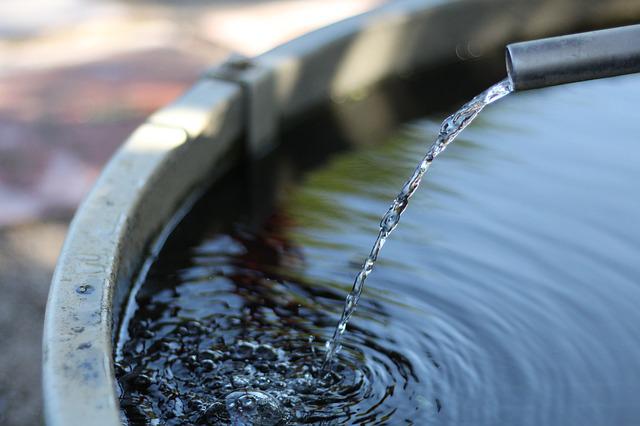
Image by Jack Sellaire from Pixabay
August 3, 2024 - WASHINGTON, D.C. — On Friday, U.S. Senator Alex Padilla (D-Calif.), Chair of the Senate Environment and Public Works Subcommittee on Fisheries, Water, and Wildlife, applauded the U.S. Department of Agriculture’s (USDA) announcement of up to $75 million awarded across five California irrigation districts to support farmers, agricultural commodity production, and water conservation. This funding will help irrigation districts and producers use innovative water savings technologies and farming practices, produce water-saving commodities, and expand and create new, sustainable market opportunities after years of historic drought.
Five California irrigation districts were preliminarily selected to receive up to $15 million each: Corcoran Irrigation District, Glenn-Colusa Irrigation District, Imperial Irrigation District, Solano Irrigation District, and Sutter Mutual Water Company. USDA worked to select irrigation districts based on several commodity production and water management-related criteria in order to maximize the ability to achieve program objectives.
“California farmers feed the nation, but long-term Western drought and water supply challenges threaten their livelihoods and, in turn, our agricultural industry,” said Senator Padilla. “These investments in the beating heart of our rural communities will build resiliency in our agricultural production and fortify California’s water supply through new water-saving technologies and commodities.”
“Agricultural producers are the backbone of rural communities across the West and many of them are struggling under prolonged drought conditions,” said USDA Secretary Tom Vilsack. “USDA is taking an ‘all hands’ approach to help address this challenge, including these new partnerships with irrigation districts to support producers. We want to scale up the tools available to keep farmers farming, while also voluntarily conserving water and expanding markets for water-saving commodities.”
In total, $400 million will be awarded to at least 18 irrigation districts, and the funding is expected to conserve up to 50,000 acre-feet in water use across 250,000 acres of irrigated land in production.
Producers who participate will receive payments for voluntarily reducing water consumption while maintaining commodity production. The needs of producers will determine the specific strategies for water conservation, including irrigation improvements, shifts in management practices, shifts in cropping systems, and other innovative strategies. USDA will learn from the diversity of strategies used and identify additional opportunities to maintain and expand water-saving commodity production in the future.
Participating producers and irrigation districts will commit to ensuring continued commodity production in the areas where water consumption is reduced. USDA is working to finalize agreements with the preliminarily selected districts, which will include the details of each individual district’s water-saving strategies, commodities to be produced, and specific budgets. Following the finalization of those awards, producers within the participating districts will work directly through their irrigation districts to participate. USDA and the preliminarily selected districts will provide more details on the agreements and opportunities for producers to directly enroll.
In addition to the preliminarily selected districts announced today, USDA also announced a Tribal set-aside within the program, targeting up to $40 million in funding for additional awards within Indian Country. USDA will work with the Department of the Interior’s Bureau of Indian Affairs (BIA), Tribes, and Tribal producers to reduce water consumption and maintain land in agricultural production — supporting the production of water-saving commodities.
Earlier this year, Senator Padilla and a bipartisan group of colleagues called on U.S. Senate Committee on Agriculture, Nutrition and Forestry leaders to address long-term drought in the upcoming Farm Bill. Padilla also led a bipartisan coalition of California members in urging the Senate and House Agriculture Committees to incorporate permanent disaster assistance for agricultural producers and communities in the Farm Bill. The letter called for the inclusion of his bipartisan Agricultural Emergency Relief Act, which would create a permanent structure at the USDA to provide relief for farmers who lost crops due to natural disasters. Padilla also recently introduced the Disaster Relief for Farm Workers Act alongside Senator Michael Bennet (D-Colo.) to provide compensation for farm workers who lose out on work and pay due to extreme weather, public health emergencies, and other disasters.
Previously, Padilla and the late Senator Dianne Feinstein urged Agriculture Secretary Tom Vilsack to ensure USDA’s Natural Resources Conservation Service (NRCS) supports conservation practices that mitigate the impacts of drought while combating climate change. Additionally, following Tropical Storm Hilary damage to California specialty crops last year, Senator Padilla hosted USDA officials alongside local leaders and growers to announce his bipartisan Fair Access to Agriculture Disaster Programs Act, which would waive the current adjusted gross income restriction that blocks producers from receiving USDA disaster program relief.
Source: Senator Alex Padilla








